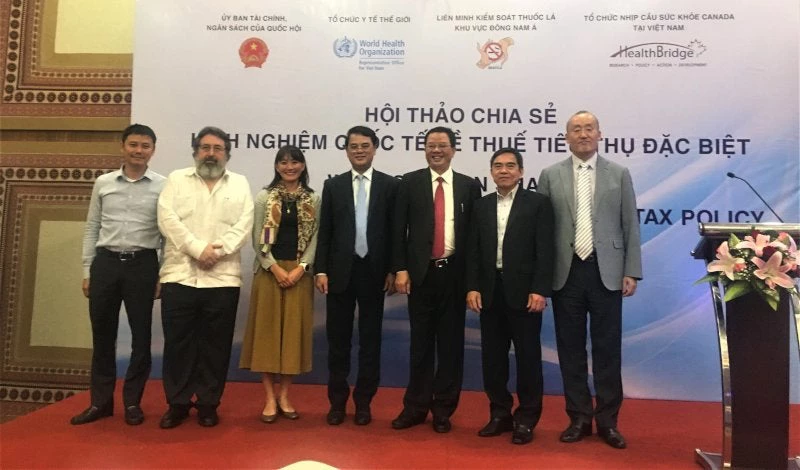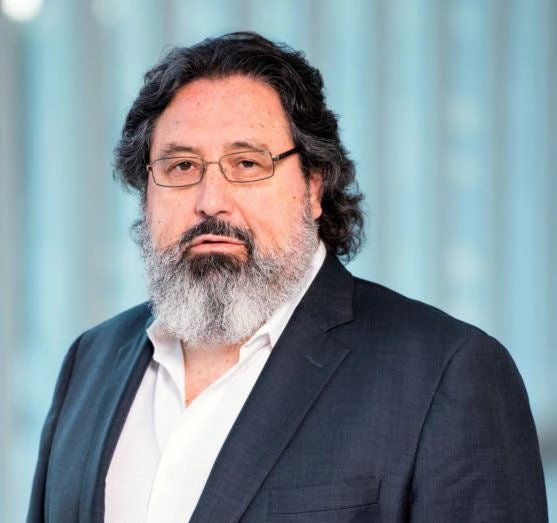 Tobacco taxation in Vietnam: A human capital development imperative
Tobacco taxation in Vietnam: A human capital development imperative
I recently delivered a presentation on tobacco taxation at a workshop in Hua Binh, Vietnam. The event was organized by the Committee of Budget and Finance of the National Assembly and the Ministry of Finance of Vietnam, with the support of HealthBridge Foudation of Canada in Vietnam (INGO), the World Health Organization (WHO), and Southeast Asia Tobacco Control Alliance (SEATCA).
There is a growing consensus in the country about the need for the government to strengthen tobacco control to protect the population from health risks associated with tobacco use. Currently, close to 50 percent of adult males smoke in Vietnam. While fewer than 2 percent of women smoke, women and children are exposed to high levels of second-hand smoke at home and in public places, which also harms and kills. It is estimated that 40,000 people are dying prematurely each year in Vietnam from tobacco-related diseases. In Vietnam, as in other countries across the world, smoking-related illnesses cost millions of dollars each year, both in terms of direct medical costs and productivity losses, imposing a heavy economic toll on households and governments.
The discussions during this event emphasized the urgent need for Government commitment and action at the highest levels to reform the tobacco tax structure and increase tax rates. As shown by international experience, high tobacco taxes help boost cigarette prices, which are highly effective in reducing demand.
In Vietnam, the excise tax on tobacco (an ad valorem tax based on the declared value of the item), represents a low 28 percent of the price of the most popular brand compared to the excise tax burden in neighboring countries such China (36%), Malaysia (47%), Philippines (51%), and the Republic of Korea (64). This rate is also well below the WHO-recommended tax burden of 70 percent of the price of a 20-cigarette pack to have a significant impact on consumption. Because of this low tax burden, cigarettes in Vietnam are among the cheapest in the world, with the price of a 20-cigarette pack of the most popular brand at less than US$1 and for economy brands as low as US$0.15-0.20 cents per pack.
The proposed tobacco tax reform in Vietnam, being considered as part of broader fiscal reforms, would aim to introduce a mixed excise tax structure by applying a specific tax on top of the ad valorem excise. This is a good policy measure as the introduction of a specific excise tax uniformly applied to all brands would help the government tax cigarettes based on their quantity, and not only their declared value, and the tax hike would raise prices by the same large amount on all brands at once preempting smokers’ switching to cheaper cigarette brands. This measure, however, would need to be accompanied with a provision to adjust the specific excise annually to keep pace with inflation and, preferably, at a faster rate to account for per capita income growth so that affordability is reduced over time.
A key question that awaits resolution in Vietnam is “how big and how fast” the tobacco excise tax increase should be. The answer should be clear to all: big tobacco excise tax increases are needed to avoid condemning large numbers of people to preventable tobacco-attributable diseases and premature death as is occurring now.
Global evidence from the World Bank presented at the event addressed policymakers’ concerns about the potential negative impact of hiking tobacco taxes. The experience of countries such as Colombia, Moldova, South Korea, Ukraine, and Philippines clearly show that rather than undermining revenue collection, increasing tobacco taxes not only contributes to reducing health risks associated with tobacco use, but can also help mobilize additional domestic resources to fund priority investments and programs under national budgets, including expansion of universal health coverage. Evidence from a recent global report also shows that raising tobacco taxes is not the primary cause of illicit trade. Rather, it shows that non-price factors such as governance status, weak regulatory framework and enforcement mechanisms, and the availability of informal distribution networks are far more important factors. Indeed, the evidence highlights that the illicit cigarette market is relatively larger in countries with low taxes and prices, while relatively smaller in countries with higher cigarette taxes and prices.
Moreover, the findings of an assessment done for Indonesia addressed concerns of potential job losses in agriculture, manufacturing, and distribution as an argument against higher tobacco taxes. They show that simplifying the tax structure and raising cigarette taxes by an average of 47 percent would reduce cigarette demand by 2 percent, increase government revenue by 6.4 percent, but reduce gross employment in tobacco manufacturing sector by only 0.43 percent. In addition, the results of assessments done in eight low- and middle-income countries do not support the claim that increasing tobacco taxes is regressive and highlight the long-term benefits derived from improved health and productivity, particularly among the poor, who tend to be more responsive to prices changes than richer consumers.
The concluding message at the event was that by adopting a significant tobacco tax increase next year as part of a road map for subsequent yearly increases, the government of Vietnam would save lives and make people healthier. By increasing healthy life expectancy, this would be a critical investment in human capital, which is becoming more and more important as the nature of work evolves in response to rapid technological change and the relative importance of knowledge economies continues to grow in the XXI Century.
Visit the World Bank Group Global Tobacco Control site for global and country assessments, blogs, videos


Join the Conversation